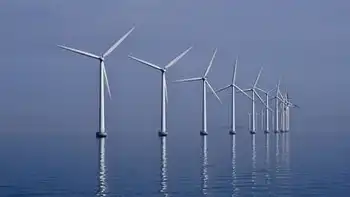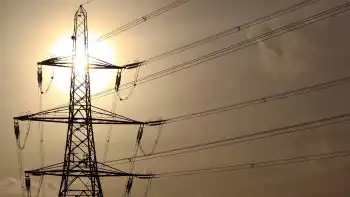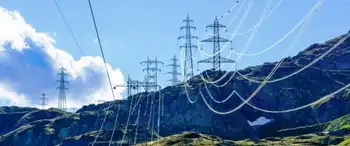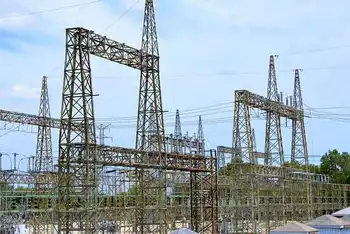Why Ontario pays so much for power
By Toronto Star
Electrical Testing & Commissioning of Power Systems
Our customized live online or in‑person group training can be delivered to your staff at your location.

- Live Online
- 12 hours Instructor-led
- Group Training Available
“Power at cost” was his cry. He would sell electricity at an affordable cost to everyone in the province — if there was a surplus of revenue, it would be used to improve the system or reduce rates. Nothing else!
But in 1998, Jim Wilson, minister of energy in the Harris government, declared: “The Adam Beck vision is over, a new vision for Hydro has arrived.”
The electric power system in Ontario would be operated like a private business, and it would have lower costs and rates.
Twelve years later, we know that the cost of electricity in Ontario for residential, commercial and industrial customers is more than twice the 1998 rate, and that jobs have been lost because of high electricity rates.
WilsonÂ’s Energy Competition Act came into effect Oct. 31, 1998. It ended Ontario HydroÂ’s status as a Crown corporation and split it into two parts, Ontario Power Generation OPG and Hydro One, both to operate under the Ontario Business Corporations Act. Municipal hydro utilities were put under the ownership of the local municipality as their shareholder under the Business Corporations Act.
Under the old Power Corporation Act, Ontario Hydro had paid no corporation taxes or dividends. Instead, the Ontario government issued Ontario Hydro bonds and collected a guaranteed rate of return from Hydro. It also charged Ontario Hydro and private power companies a water-use fee for power generated on Ontario rivers. Ontario Hydro paid a fee to support the Niagara Parks Commission as well. In 1998, these three costs totalled about $180 million a year.
Under the new legislation, there were 10 new charges that cost hydro users at least $1.5 billion on their hydro rates:
• Corporation taxes paid by OPG and Hydro One.
• Dividends paid by OPG and Hydro One to their shareholder, the provincial government.
• Corporation taxes paid by local distributors.
• Dividends paid by local distributors to their shareholders.
• Cost of operations of the Ontario Energy Board previously a provincial expense.
• Cost of operating the Ontario Power Authority a new agency.
• Cost of subsidizing wind power and solar power generation through the Global Investment Fund, now about 4 cents per kWh, hidden in your hydro rate.
• The GST, although not the PST.
• Tax on lands held by OPG and Hydro One not including land used for transmission or distribution lines. Previously, Ontario Hydro had paid property taxes only on buildings.
• Decommissioning fund and used fuel fund for nuclear plants.
On top of these, the McGuinty government has added a new set of costs and charges to hydro customersÂ’ bills:
• Effective May 1, a special service charge to pay for conservation and renewable energy programs.
• Increase of 9 per cent on energy generation rates to replace lost industrial revenue.
• The HST, 13 per cent replacing the GST at 5 per cent.
• Increase in the Global Investment Fund charge to pay for new wind and solar power programs operated by the Ontario Power Authority.
• Smart meter program. Some may save under this program if they can manage their load but estimates are a 10 per cent increase for most customers.
There is no accurate summary of what the extra costs add up to, but the best estimate is about $2 billion. In 2008, OPG alone paid $670 million in business taxes, $128 million in dividends and $151 million in land tax, for a total of $949 million. Hydro One, local distribution utilities and other charges provided the remainder.
The changes in rates have been driven by the decision to shut down coal plants and replace power supplies with green energy sources, as well as the need for revenue to deal with the provincial deficit. Adam Beck would be appalled.
Retail customers are paying much higher rates but the real damage is to the industrial sector, which was built on low power costs and made Ontario the economic engine of Canada.
Here are some changes that should be made to reduce costs:
• Eliminate all corporate profit taxes and the HST on all electric power facilities, and municipal distributors.
• Control the level of dividend payouts to shareholders of electric power facilities. There should be a fixed rate and no share options for management.
• Stop paying exorbitant prices for wind and solar power, and no more long-term contracts.
• Cut back regulatory and promotional programs financed by charges on the hydro rate.
Adam Beck’s ideal of “power at cost” is gone and it is clear that we cannot go back to the old system. But the dangers of the current approach to the Ontario economy are obvious.
None has said it better than Dr. Jan Carr, former president of the Ontario Power Authority, at the Waterloo Institute for Sustainable Energy in September of last year:
“Current policies reflect public concern about global warming at the expense of securing a stable and economic energy future. If such publicly popular but economically unsound policies continue, the province’s prosperity will be seriously jeopardized.”















